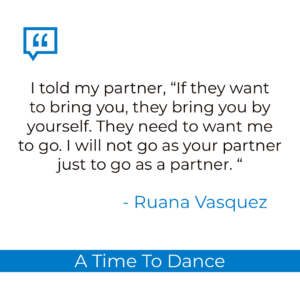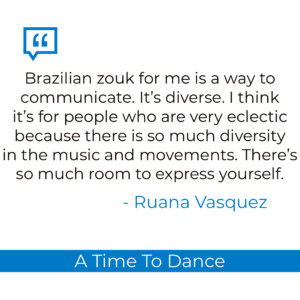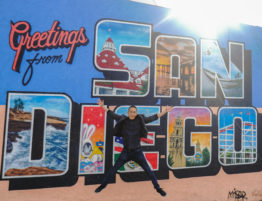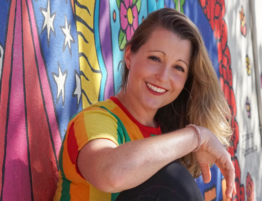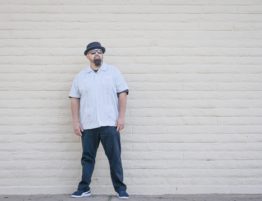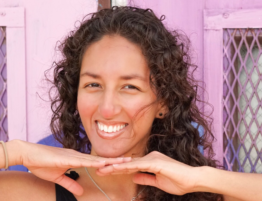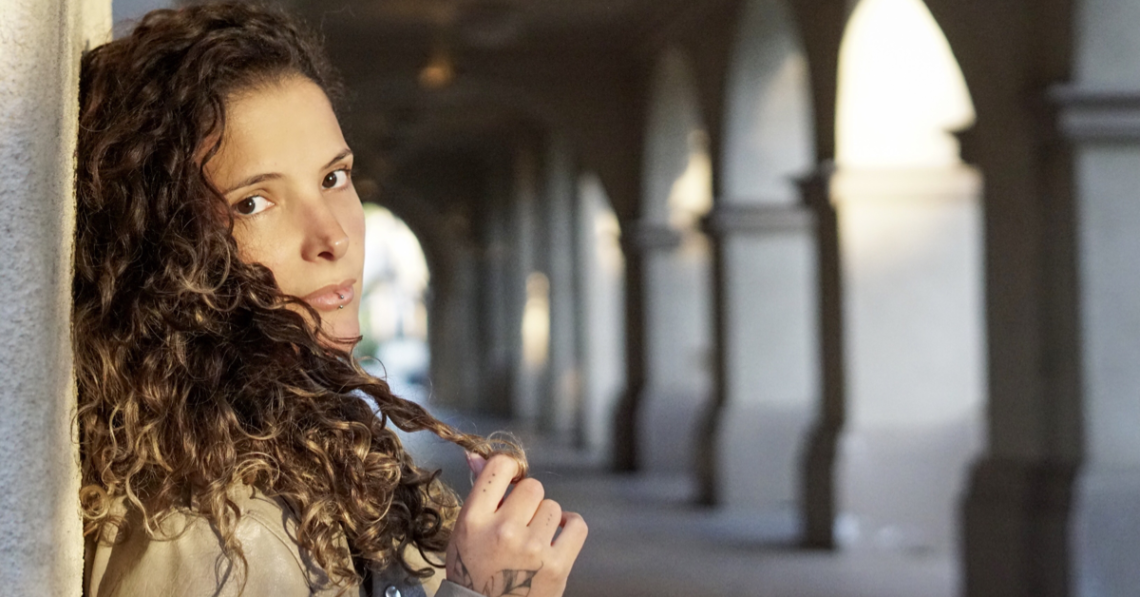
Remember this name!
Ruana Vasquez is one of the pioneering solo women instructors of Brazilian Zouk.
A professional dancer from Fortaleza, Brazil, Ruana carved a name for herself in a scene that was at first reluctant to value her as much as her as her male counterparts.
With perseverance, an incredible work ethic, and undeniable talent, she made it to where she is today: as a world-class travelling female dancer/instructor/choreographer who can both lead and follow.
Lucky for us San Diegans, she’s made it a habit to stop by every time she does a U.S. tour, and we couldn’t be more grateful to chat with her about her dance journey (and of course we had to do it while walking around iconic Balboa Park!). Here’s what she had to say:

Q: How did you get into Brazilian zouk?
I started social dancing with forró. It is well-known in Brazil, like salsa is for here. We have a lot of forro!
After I went to college, I was helping to teach forró and joined an instructor course where I learned all of the dances together – tango, samba, forró, salsa, merengue, bachata, bolero, soltinho, and zouk as well. But zouk was not that famous at that time.
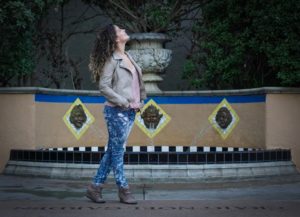
Q: When did you start travelling for zouk?
I started to work with dance in 2006. From the beginning, I liked zouk, but there was not much opportunity in Brazil. I was focusing on tango because of my teacher and salsa because it was really hot. We had the world champions Carine and Rafael, now eight times world champions, in my city!
But in 2008, I went to the zouk room at the nationals and I was like, “What am I doing with other dances? This is what I want to do!” I had a few options: go to São Paulo or Rio de Janeiro and just be one more zouk dancer, or stay in my city where it would be harder to learn, but I could still make my name and my career. I decided to stay and worked very hard.
In 2010, I partnered with Rick Torri and we began to travel within Brazil.
Then in 2012, I moved to Rio to train more, formed a partnership with Val Clemente, and in 2013 began to travel outside of Brazil.

Q: For the most part, you teach as a stand-alone artist?
My partners and I would meet at events to teach together, but otherwise I was always working by myself.
The zouk scene was really sexist at that time and the odds of getting hired are much higher with a partner. I told my partner, “If they want to bring you, they bring you by yourself. They need to want me to go. I will not go as your partner just to go as a partner.” So, I lost a lot of events.
But with time, they did want me to come, either with him or by myself. I started to grow my name. We partnered and traveled more within Brazil through 2012-2013.
I then partnered with Val and we had the same kind of arrangement. We could both work by ourselves and partner up. I really wanted to make it clear in the scene that I was able to have my own career.

Q: How is the Brazilian zouk scene for women? Do you see a lot of women lead and follow? And do you feel like you have gained a lot more respect?
Now, it is much better! Before, it was not even close. I was one of the first. We have Renata, who is the queen, but a lot of female dancers’ careers used to depend on their partnerships. If the partnership broke up, then the woman risked disappearing.
Nowadays, we can work by ourselves, get a new partnership, keep working. It’s getting better. But it can still grow.
Nowadays I feel like I am well-respected, but I think that in a lot of situations, it would be different if it wasn’t me.
Q: How would you describe Brazilian zouk and what kind of person is it for?
Brazilian zouk for me is like a way to communicate. It’s diverse. I think it’s for people who are very eclectic because there is so much diversity in the music and the movements. There’s so much room to express yourself. It’s not just sexy! It’s sexy most of the time, but it’s funny too. There’s a lot of fun and funny songs right now. There’s the dirty side, there’s music where you just travel.
I like it because I sometimes overthink and like to control, but when I follow, I forget about everything and only think in the now. That’s also why I like following more than leading.
It’s for people who want to express themselves and move their body.

Q: What is your relationship with San Diego?
California is my second home! I feel really welcome here. Of course, people fight everywhere – people who don’t like each other, things don’t go right – but I felt that here, you get a clearer sense of when you are welcome and when you aren’t.
Americans are more blunt. Brazilians, if they don’t like you, they don’t really say it to your face. Americans don’t care! They’ll be like, “F**k you!” And more people were more welcoming than “f**k you!” I kind of prefer it.
I also felt that for the first time in my life, my work was worth it. Brazil doesn’t take it seriously, but here it felt like I was making a change in people’s lives.
I was getting so many thank you messages and people telling me I saved their life. I felt like a doctor! It’s hard work, but it’s worth it.
As for San Diego, it’s warmer! It’s beautiful and by the beach, so it’s perfect. And the people in California are really nice. I feel more me here than I do in my own city.
Q: Are you still fundraising for your visa? Where can people donate?
Yes, we are! It’s Help Bring Ruana Vasquez To The U.S.

Q: What advice do you have for zouk dancers?
People always tell me what they are having a hard time with, but don’t worry, everyone has a hard time! Or they say they don’t ask me for a dance because they think there will be a line, but really I was dancing more when I didn’t have a name. People don’t ask me as much.
There are struggles, it will get better. Keep going. Respect your limits. Celebrate your small victories. Enjoy the way of getting there, not just getting there.

What are your goals for zouk as of right now?
I want to get a base and be established somewhere. Of course I want to keep travelling, but I want a place to come back to. Zouk is growing and growing and growing! Maybe there is a zouk school in the future.
Ruana Vasquez is a professional Brazilian zouk dancer and instructor. Follow her on Instagram at @ruanavasquezofficial and support her fundraiser at Help Bring Ruana Vasquez To The U.S.
Heather Hallahan
Latest posts by Heather Hallahan (see all)
- Q&A with Kevin Qin: An Engineer’s Journey To Finding Purpose In Teaching Salsa - Thu, January 30, 2020
- Q&A With Ruana Vasquez: Valuing Women In Brazilian Zouk - Sat, December 14, 2019
- Q&A With Elizabeth Kilrain: Who Gets To Say What Blues Is? - Mon, November 25, 2019

